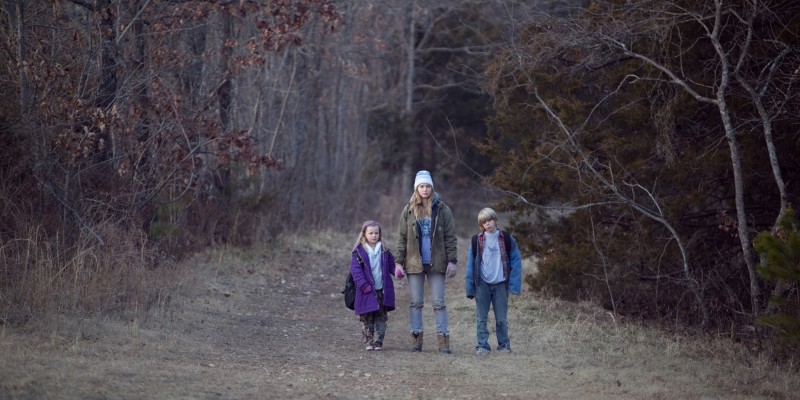There’s something about a coming-of-age book or film that gets me every time. It’s the yearning, I think. I love the wistful, romantic feelings they inspire, and how they crystalize what is usually a gradual, drawn-out process into a definable moment in time. Coming-of-age stories are about endings—of youth, or innocence, or simply the person you once were—endings that tilt toward a new beginning. They represent a growing awareness of one’s belonging in a darker, more complicated world, so it makes sense that a crime might be the triggering event in such stories.
When I sat down to write Pay Dirt Road, I wanted to capture the feeling of being young and aimless. My protagonist finds herself graduated from college but stuck waitressing in her tiny hometown, gaining a sense of purpose when she begins investigating a coworker’s disappearance. When I realized I was writing a mystery that blended coming-of-age elements, I turned to my bookshelf for further inspiration. Below I’ve rounded up seven excellent crime meets coming-of-age novels:

The Round House by Louise Erdrich
The novel opens with Ojibwe lawyer Joe Coutts looking back on the summer he was thirteen, the summer when his mother, a tribal clerk on the North Dakota reservation where they live, was brutally attacked. While his father, a judge, seeks justice through official channels and is continually thwarted, Joe becomes frustrated and sets out on his own rogue investigation. Erdrich is one of my favorite authors and this novel, in my humble opinion, is her best. It’s about the adolescent drive to seek justice—or revenge—and what that actually looks like in an unfair world. It’s also a total page-turner with warmth, humor, depth, and characters you won’t ever forget.

The House Uptown by Melissa Ginsburg
I loved Ginsburg’s writing style and it was no surprise for me to learn that she is also a poet. The novel is about fourteen-year-old Ava, who after the death of her mother goes to live with her grandmother, Lane, in New Orleans. Lane is an eccentric, talented painter, and in addition to tracking Ava’s coming-of-age, the novel follows Lane’s loosening grip on reality and the explosive secret she’s been keeping finally coming to light. There’s a nod to Flannery O’Connor in the book, and there’s something in Ginsburg’s telling, too, that perfectly captures the inevitability of a violent reckoning.
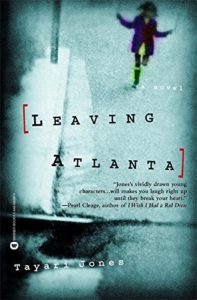
Leaving Atlanta by Tayari Jones
This richly-detailed, evocative novel is written from the point-of-view of three Black fifth-graders in 1979, during the ongoing investigation into the Atlanta Child Murders. Jones accurately depicts the terror of being on cusp of adolescence: it’s a book about realizing that the world is bigger than you ever imagined, full of external forces both good and bad. That specific-to-childhood feeling of being both in the world and powerless to it. Worse, realizing that the buffer between you and the monsters of the world doesn’t really exist—that your parents can’t always protect you. And specifically, for Tasha, Rodney, Octavia, a sharper awareness of racism. The terror of an unknown assailant who targets Black children setting the entire city on edge is palpable. And though the story thrums with this anxiety, the book is often funny, nostalgic, and warm—in other words, a totally immersive read.
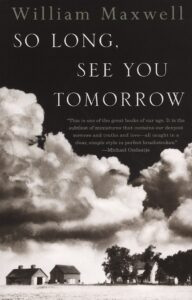
So Long, See You Tomorrow by William Maxwell
A few pages in, the narrator’s mother dies of the 1918 Spanish flu. This shatters the narrator, whose life is now marked by a distinct “before and after”—but this is not the only “before and after” moment in the man’s early life that haunts him. This slim, gorgeous novel is mostly the older narrator at a remove describing a love triangle and murder in a small, Illinois farm town, and the effect it had on his childhood friend. It’s also a reflection on becoming aware of the faults of one’s parents, youth, kindness, and regret. It’s about the pull of the past and our desire to keep explaining it, though such a task is nearly impossible to get right.
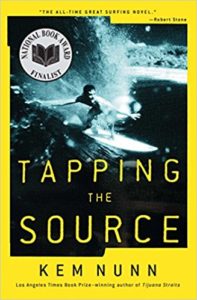
Tapping the Source by Kem Nunn
Known as a “surf noir” classic, this is the story of Ike Turner, a young man living in a dead-end town in the desert when a stranger comes with news of his wayward sister. Ike sets out for Huntington Beach to find out if three surfers, all tied to the town’s drug/party scene, may have murdered her. I love this book for how Nunn captures the ache of coming into an awareness of your limitations—as a young person, as a hick, as an outsider—and the crazy urge to keep pushing on, all the while wrestling with the motivations behind Ike’s quest. Is Ike sticking around because he thinks he can find his sister? Or has he been seduced by the very forces that might have been her downfall? Not to mention to lush descriptions of surfing and the ocean, which are worth the price of admission alone.
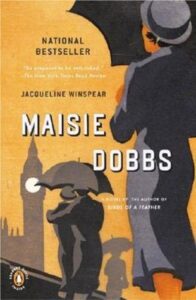
Maisie Dobbs by Jacqueline Winspear
London private investigator Maisie Dobbs is an intelligent, lovable heroine, and part of the pleasure of the first book in this series is learning her compelling origin story. After setting up the present-day case, Winspear dips back into the past for a large chunk of the narrative, depicting Maisie’s coming-of-age as a maid, student, apprentice investigator, and battlefield nurse in France during WWI. The best mysteries, in my opinion, are about the journey—and what the journey reveals to the protagonist about themselves—as much as they’re about solving a case. Winspear expertly delivers both, along with rich, historical detail, but it is the evolution of Maisie that satisfies the most.
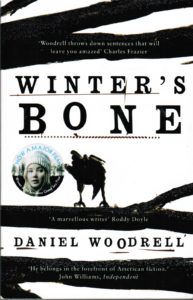
Winter’s Bone by Daniel Woodrell
Set in the Missouri Ozarks, this is the story of Ree Dolly, who is sixteen, and caretaker to her mother and her young brothers. Her dad has skipped bail and the family stands to lose everything if Ree can’t bring him back by his court date, dead or alive. So begins what reads at times like a mythical hero’s journey, with the kind of sentences that float around in your mind for a long time. Prose that is distinct, lyrical, and earthy. Ree suffers betrayals one after the other and few benevolences. It’s less a coming-of-age about losing innocence—Ree is used to being the steadfast one, the adult—and more about her learning the depths of her strength, and her gaining the ability to look the monster straight in the eye.
***

